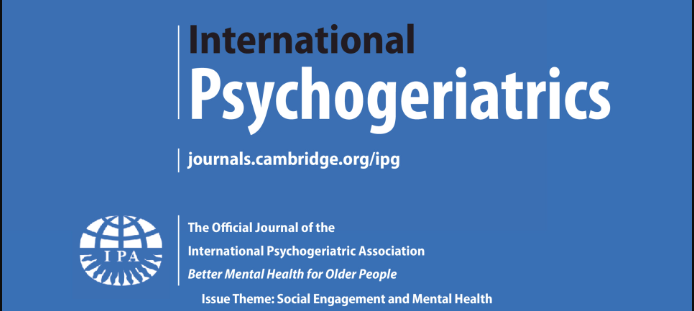P7: Institutionalization and Psychotropics
IF 4.6
2区 医学
Q1 GERIATRICS & GERONTOLOGY
引用次数: 0
Abstract
Introduction:Psychobehavioral symptoms are one of the main causes of institutionalization. After the first months of institutionalization, it could be a good opportunity to consider deprescribing psychotropics, at the same time person-centered non-pharmacological measures should be implemented. Also, if dementia stage is moderate or advanced, acetylcholinesterase- olyph-inhibitor (AchEI) should be deprescribed.Objectives:To evaluate the difference between the number of psychotropic drugs in institutionalized patients and those who are at home.Materials and Methods:We selected all the patients admitted in the Acute Geriatric Unit of “Hospital Universitario de Navarra” during May and June of two consecutive years (2021 and 2022). We collected demographic, administrative, functional and pathological variables, as well as delirium predisposing factors, drugs on admission and discharge and Drug-Burden-Index (DBI). A descriptive study was carried out and our hypothesis was analyzed.Results:658 patients were recluted with a medium age of 87.8, 55.6% were females, 44.5% had dementia and 22% were Institutionalized. The mean hospital stay was 5.8 days and 11.7% died. Functionally, the mean Barthel was 56.5 and Lawton 1.49. Regarding comorbidities: arterial hypertension (81%), Osteoarthritis (55%), heart failure (51%), dislipemia (47%), chronic kidney disease (42%), auricular fibrillation (39%), osteoporosis (33%) and diabetes (31%). Regarding geriatric syndromes: polypharmacy (87,5%), sleep disturbances (48%), hearing loss (43%), chronic pain (41,5%), visual loss and constipation (38%) and depression (33%). The main delirium predisposing factors were: age more than 80 (93.5%), olypharmacy, neurological disease (47%), altered senses, chronic pain and depression. Comparing psychotropic use between institutionalized and non institutionalized: psychotropics (78%vs69%), night psichotropics (72%vs63%), neuroleptics (37%vs18,5%), AchEI (13%vs6,5%), antiepileptics (21%14%). All of them p<0.05. However, there were no statistically significant differences in the use of benzodiazepines, antidepressant or antiparkinsonian.Conclusion:Nowadays, institutionalized patients have more phsychotropic drugs than non-institutionalized ones, especially neuroleptics. Moreover, they are more frequent in patients with severe dementia. Maybe, the explanation is DEPRESCRIPTION AVOIDANCE due to an acute fear of a behavioral decompensation. We recommend educating in non-pharmacological measures and insisting on an adequacy of pharmacological prescriptions periodically.P7:机构收容和精神药物
导言:精神行为症状是导致入院治疗的主要原因之一。在入院治疗的最初几个月,可以考虑停用精神药物,同时实施以人为本的非药物治疗措施。材料与方法:我们选取了 "纳瓦拉大学医院 "急性老年病科在连续两年(2021 年和 2022 年)的 5 月和 6 月期间收治的所有患者。我们收集了人口、行政、功能和病理变量,以及谵妄的诱发因素、入院和出院时的用药情况和药物负担指数(DBI)。结果:658 名患者的平均年龄为 87.8 岁,55.6% 为女性,44.5% 患有痴呆症,22% 为住院患者。平均住院时间为 5.8 天,11.7% 的患者死亡。在功能方面,巴特尔平均值为 56.5,劳顿平均值为 1.49。合并症方面:动脉高血压(81%)、骨关节炎(55%)、心力衰竭(51%)、血脂异常(47%)、慢性肾病(42%)、耳廓纤维性颤动(39%)、骨质疏松症(33%)和糖尿病(31%)。老年综合征方面:多药(87.5%)、睡眠障碍(48%)、听力下降(43%)、慢性疼痛(41.5%)、视力下降和便秘(38%)以及抑郁症(33%)。导致谵妄的主要因素有:年龄超过 80 岁(93.5%)、服用奥利司他、神经系统疾病(47%)、感官改变、慢性疼痛和抑郁。比较住院病人和非住院病人使用精神药物的情况:精神药物(78%vs69%)、夜间精神药物(72%vs63%)、神经抑制剂(37%vs18.5%)、AchEI(13%vs6.5%)、抗癫痫药(21%14%)。所有数据均为 p<0.05。结论:如今,住院病人比非住院病人使用更多的精神药物,尤其是神经抑制剂。此外,这些药物在重度痴呆症患者中的使用频率更高。这可能是由于对行为失常的强烈恐惧而导致的 "避免用药"(DEPRESCRIPTION AVOIDANCE)。我们建议对患者进行非药物治疗措施的教育,并坚持定期检查药物处方是否充足。
本文章由计算机程序翻译,如有差异,请以英文原文为准。
求助全文
约1分钟内获得全文
求助全文
来源期刊

International psychogeriatrics
医学-精神病学
CiteScore
9.10
自引率
8.60%
发文量
217
审稿时长
3-6 weeks
期刊介绍:
A highly respected, multidisciplinary journal, International Psychogeriatrics publishes high quality original research papers in the field of psychogeriatrics. The journal aims to be the leading peer reviewed journal dealing with all aspects of the mental health of older people throughout the world. Circulated to over 1,000 members of the International Psychogeriatric Association, International Psychogeriatrics also features important editorials, provocative debates, literature reviews, book reviews and letters to the editor.
 求助内容:
求助内容: 应助结果提醒方式:
应助结果提醒方式:


